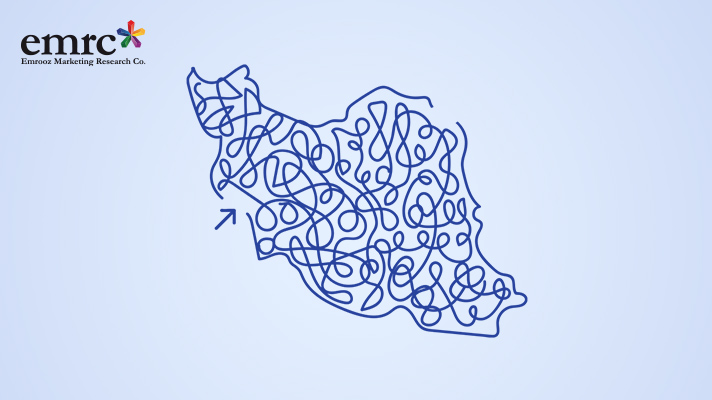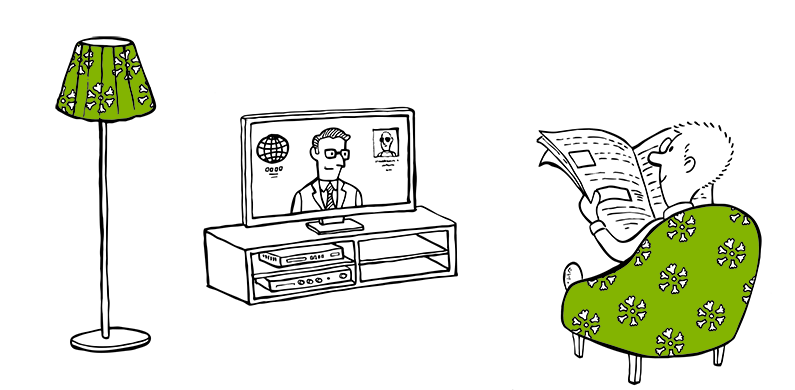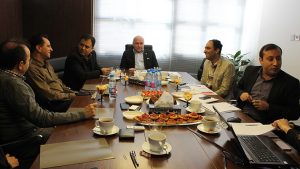
Iran Scores Average in Public Mood Survey
Major international market research and polling agency, WIN International has published its annual WIN World Survey (WWS – 2019) which explores the views and beliefs of 29,575 people from 40 countries across the globe on their quality of life and the population’s mood.
To establish an in-depth understanding of Iranians, WIN has forged a partnership with a dnaunion subsidiary, emrc to explore the views and beliefs of people in Iran. During a recent survey, 500 people from across Iran were interviewed via phone. The data gathered from Iran were compared with other countries. The WWS data were collected between October and December 2019.
The main goal of the WWS is to investigate thoughts, expectations, worries, and perceptions related to relevant topics for society and business. It becomes clear how all of these can change in times of crisis, like the one we are living through right now.
The spread of Covid-19, in addition to taking a toll on the health care systems and the economic structure of many countries, has also deeply impacted societies at different levels. Even people who have been lucky enough to not experience any direct consequence from the Coronavirus are afflicted by quarantine and lockdowns while people who lost loved ones or are out of jobs due to the viral outbreak have been even further severely affected by the pandemic.
Mood Index
The mood index evaluates the state of well-being of a person during the two weeks before the survey by evaluating seven aspects namely optimism, usefulness, calmness, ability to cope with problems, ability to think clearly, feeling close to others, mental stability, and decisiveness. Finding of the survey were standardized based on the Warwick-Edinburgh Mental Wellbeing Scale (WEMWBS).
Around the world, 66% of people declared that they felt able to make their own decisions, while 19% did not feel optimistic about the future.
In general, the higher the level of respondents’ education, the higher was their perceived quality of life. Students and retired people are the most optimistic, which is reflected when considering age categories as well: young people (18 to 24) and people over 65 years old are the most satisfied with their quality of life. Unemployed people scored significantly lower in this category.
The global index revealed a neutral mood (22.8). Very few countries showed a high mood index, although there are several countries above the average. Ecuador is one of the 4 countries with the highest mood index and it ranked first among all countries (26.50), followed by India (25.43), Slovenia (25.25), and Pakistan (25.04). On the other hand, there are a few countries with a lower mood index: in particular, Ireland (16.97), Japan (19.60), and Malaysia (20.40).
The mood index for Iran stood at 21.5 and the country was ranked 30th among 40 nations ahead of China with 21.4 and South Korea with 21.7. Iran’s northern neighbor Turkey scored 23.4 and was ranked 19th among 40 countries.
Iran scored near the global average. The mood index was lower for unemployed people and housewives. Iranians scored lower than the global average in terms of optimism index and the ability to think clearly. On the other hand, Iranians are more willing to accept problems and deal with them compared to other nations, the survey revealed.
Vilma Scarpino, President of WIN International Association, says, “This survey reveals that progress and technology, which contribute to improving people’s quality of life, do not necessarily reflect people’s mood, which is affected by many other aspects as well. This was the case before the Covid-19 crisis, and we can assume the picture won’t be better now, considering the situation.
People’s feelings and emotions were deeply affected by the speed of changes and the transformation of society even before the spread of the virus, Scarpino says adding, “Now, people are facing even more changes, feelings of instability, and loss. These results provide an opportunity for governments to reflect on the importance of working for a public health system that can face and assist people for these issues.”





